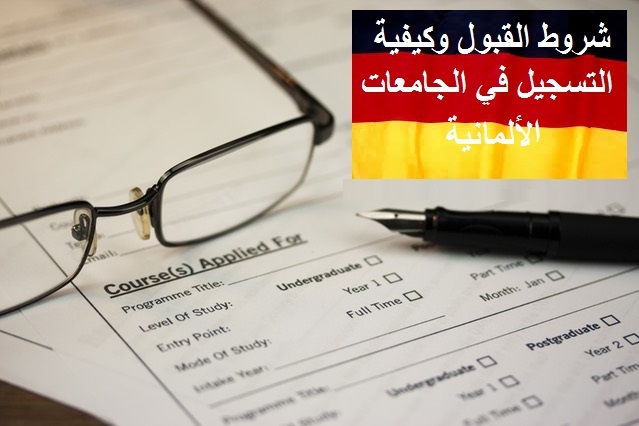
Schools in Germany
The school system in Germany
compulsory education
In Germany, all children are required to go to school from the age of six or seven. Every child living in Germany must go to school at this age and study for at least nine years. This general rule also applies to refugee children and adolescents - if they are six years old or older, they often have to go to school after arriving in Germany. Regulations related to education vary from state to state. For more information, see the subchapter referring to the education system in each federal state.
Note: impose parents who do not send their children to school pay a heavy fine.
Which school can my children attend?
Initially, all children must go to primary school. The elementary school extends from 4 to 6 years of education, depending on the law of the federal state in which the child lives. After primary school, students go to secondary school. (Immediately after the primary stage, the majors are separated, and the child, with the help of parents and teachers, must decide what branch he wants to study) The type of secondary school that the child attends has a great impact on his life and future. The higher the grades a student gets, the more choices and opportunities he will have later in his education and future career. end of high school Abitur is the certificate a student completes within the school system - only with an Abitur can a student enter a university. In some federal states, a student's grades and teacher evaluations at the primary level determine the type of secondary school a student must attend after completing Elementary level Also, in many federal states, teachers can only make their recommendations, but the final decision rests with parents. This means that parents do not necessarily follow teachers' advice. But it can be difficult to find a high school that accepts students if their grades are low.
Marking system in German schools
The German grading system consists of six grades: "1" is the best grade and "6" is the worst grade. Students receive a certificate of credit for all subjects twice a year. The interim report, usually at the end of January, serves as guidance for parents and children about a child's performance. The annual report card before summer vacation determines whether the child should move to the next grade or repeat the year. In most elementary schools, there are no certificate grades during the first two years of school. Instead, the teacher writes a short text about the child's level and performance.
Important: Bad grades are not a disaster. Teachers will be happy to advise parents and the child on what to do. You can find out more about this in the section “My child is having difficulties at school. What should I do?”. But advice can also be sought outside of school: for example, atBeim JMDFind a nearby counseling center or get advice online. The staff there speaks many languages.
Parents can also get free counseling (with personal information kept anonymous) from the Parent Hotline. Employees can be told about their concerns and difficulties. Staff will listen to them and work with them to find a solution. The hotline for parents can be reached daily between 9 am and 5 pm at the toll-free number 0800 18 777 77 in German and English. Or you can write a letter tofraguns@elternhotline.de in German, English, Arabic, Farsi, French, Turkish, Kurdish, Bulgarian, Romanian, Russian, Serbian, Spanish, Polish, and Croatian. Staff will respond within 24 hours.
What happens if the kids don't speak German yet?
Children and teenagers who do not speak or speak little German must first attend special courses where they learn the language and learn about German culture. These categories are often calledWillkommensklassen", "Vorbereitungsklassen" or "Übergangsklassen" (Ü-Klassen), in these classes children are prepared for entry to regular schools. Students are gradually assessed according to their age, performance, and language skills.
Are there alternatives to public schools?
In addition to public schools, there are also private schools in Germany. These schools are not regulated by the state but are operated, for example, by private companies, the church, or an association. They often have a certain philosophy or teaching method. These schools often cost money. Those who wish to send their children to a private school can seek advice from the school of their choice.
My child has a learning difficulty or a special educational need. What do I do?
Children with special difficulties or disabilities can study with non-disabled children in many schools. But there are also special schools for children with special needs only. If the child goes to a kindergarten, the staff there can advise. You can also find support in an organization JMD. The staff there speaks many languages. The parental hotline can also be used Elternhotline Ask questions in different languages.
What to do if a child is bullied at school?
When a child is insulted, ridiculed, bullied, threatened, or persecuted by another child or group of children for an extended period, it is called bullying. Many children are bullied - especially at school. Anyone can become a victim of bullying - in all cases, the victim cannot be blamed, but the perpetrators, who use bullying to establish themselves or to control others, must be blamed.
It is not easy to tell if a child is a victim of bullying. But it is good to note some details, for example: if the child suddenly behaves differently, does not like to go to school, is often sick or pretends to be sick to evade school, has lower grades, no longer wants to go to the gym, or suffers from Sleep problems, etc., these may be indicators. In this case, the parents should try to find out the reason in a gentle way that does not negatively affect the child. In general, children need to be asked regularly about school and their friends. It is especially important to listen to them when they talk about school or their friends. Also, parents should maintain regular contact with teachers, coaches, parents of friends, etc., and ask them about the child's behavior.
If a child is being bullied, teachers and social workers/coaches can be spoken to immediately. They should work with the parent and the child to think about how to solve the problem. If there is physical violence or extortion, the police can also be contacted. You can also find help in different languages at advice centers such as JMD or the Elternhotline parenting hotline.
What to do if a child is being bullied online?
Embarrassing and/or modified photos or videos of children and young people are often uploaded to social media (TikTok, Instagram, Snapchat, etc.) without their consent. Sometimes the perpetrators hack into the child's page and publish his name. When someone is slandered, threatened, or harassed online, this is called cyberbullying. Cyberbullying is a criminal offense. If a child is a victim of cyberbullying, the material must be downloaded and saved – as evidence of the crime. Then it should be shown to the school and, if necessary, to the parents of the offenders and then think about how to solve the problem together. The site operator must also be notified for the posts to be deleted. It is important for parents to talk to children about their online activities and how they can protect their privacy. klicksafe.de has a lot of information about cyberbullying in German. The JMD Counseling Center or the Elternhotline Parenting Hotline can also provide counseling.
The child has difficulties at school: what to do?
It is normal for children to have problems with one or more topics at first, or in between. Teaching can often help. When it comes to tutoring, the private supervisor will help with the topics the child is having difficulties with after school. There are private schools where several children study together. It is less expensive than private lessons. But "teachers" can also be older students, former teachers, or adjunct neighbors that often don't cost a lot of money. In some schools and youth centers, there is also free homework help in the afternoon. It is also a good idea to seek advice from the child's teachers or other parents.
The child can also get help with online learning.
on the site stayschool.de, 5th graders can get free online education help. Volunteers support the child in learning through video chats. This teaching is available in several languages.
And on the site corona-school.de Children can get help from older students (mostly university students) for free from first grade onwards. They volunteer to help younger students with homework while schools are closed. Support is via video chats in German.
important
If a child has problems with particular teachers, he or she can contact the school administration. If he has problems with the school administration, the district education authority can be contacted. Counseling center canJMD or the Elternhotline Parents Hotline offer advice and support as well.
Explainer video of the school system in Germany
https://www.youtube.com/watch?v=qM2tLxf8tog&feature=emb_title


